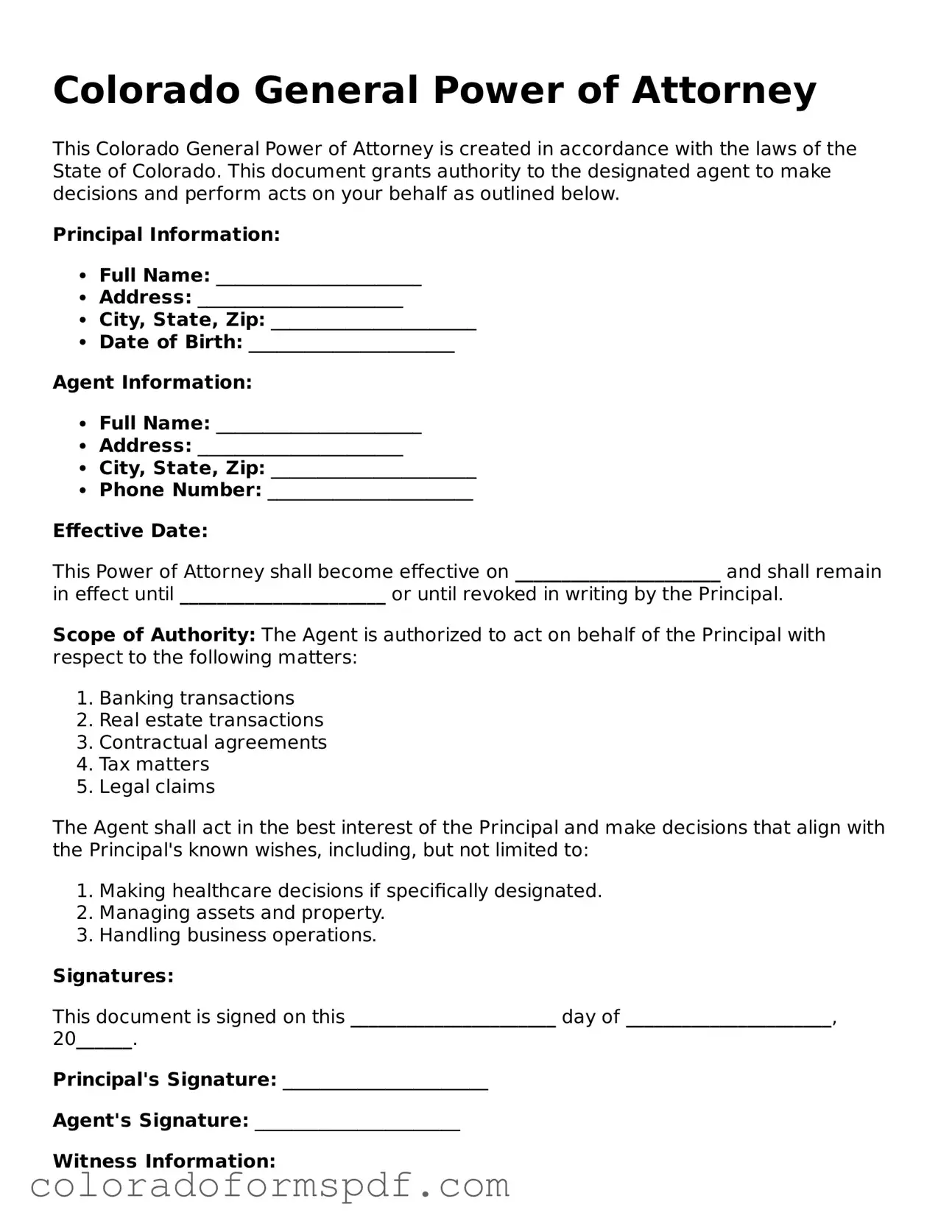Official General Power of Attorney Template for Colorado State
A Colorado General Power of Attorney form is a legal document that allows an individual, known as the principal, to appoint someone else, called an agent, to make decisions on their behalf. This form grants the agent the authority to manage financial and legal matters, ensuring that the principal's interests are protected. Understanding how to properly execute this document is crucial for anyone looking to delegate responsibilities effectively.
Get Document Online

Official General Power of Attorney Template for Colorado State
Get Document Online

Get Document Online
or
Download PDF
Quick form completion starts here
Edit and finish your General Power of Attorney online, then download.